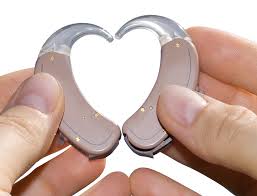Human Hearing Aids.
Many people find their hearing starts to suffer with age and are often recommended to use a hearing aid. According to experts in Japan however, their hearing can improve if they take certain measures and if those around them are careful to communicate in appropriate ways.
One example of this saw how a 79-year-old woman, worried that she could not keep up with conversations with others despite a hearing aid she bought four years ago, could be helped in other ways. Around that time, she spoke with a speech therapist who helped people with hearing disabilities regain function.
He suggested that she told people she would be having conversations with that she was hard of hearing and try to be close to them when she spoke and to ask them to talk slowly.
She said that at first she hated people knowing that she had a difficulty hearing but that when she did she enjoyed going out more as she could hear more of the conversation.
Elderly people’s hearing deteriorates due to the ageing of the cells in the inner ear that convert sounds into electronic signals. They have difficulty hearing high notes and consonants, and often can make out sounds but not spoken words.
Another patient was told by family members the TV was too loud, so the hospital advised using a cordless speaker the patient can put nearby, or a wireless device that sends the TV’s audio to a hearing aid, although it has to be said that some commercially available devices may injure users’ ears, depending on how they are used.
They suggested to always consult with doctors or speech therapists before using such devices. Instead of thinking someone can’t be helped because they’re too old, patients and their families should see a doctor soon.
If conversational partners know to what extent an elderly person is hard of hearing, they can help them more easily. Many people think it is necessary to speak to them loudly and closer to their ears but that apparently causes speaking voices to crack and makes it harder for them to hear what is being said. Basically, we should face people with hearing disorders directly and speak slowly with a natural voice.
He also pointed out the importance of speaking clearly and not slurring the ends of sentences, not having two or more people speak simultaneously, and trying to reduce surrounding sounds as much as possible such as TVs and the washing of dishes.
Even in the company of others it is possible for an elderly person to feel lonely if they can’t be part of the conversation.

